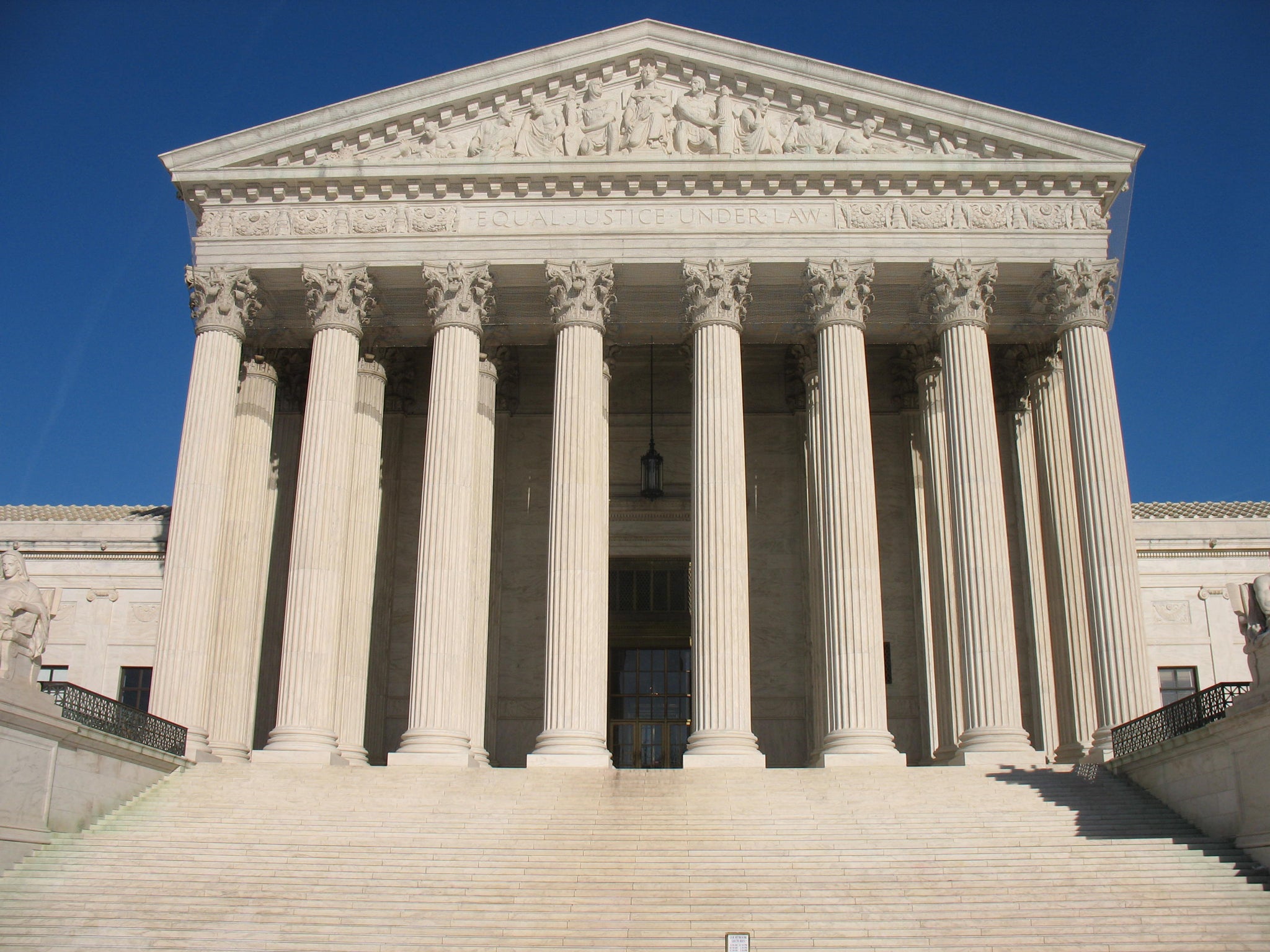US Supreme Court rejected an appeal of the controversial Texas voter ID law opponents say 'penalises poor voters'
The may revisit the case before the November election

Your support helps us to tell the story
From reproductive rights to climate change to Big Tech, The Independent is on the ground when the story is developing. Whether it's investigating the financials of Elon Musk's pro-Trump PAC or producing our latest documentary, 'The A Word', which shines a light on the American women fighting for reproductive rights, we know how important it is to parse out the facts from the messaging.
At such a critical moment in US history, we need reporters on the ground. Your donation allows us to keep sending journalists to speak to both sides of the story.
The Independent is trusted by Americans across the entire political spectrum. And unlike many other quality news outlets, we choose not to lock Americans out of our reporting and analysis with paywalls. We believe quality journalism should be available to everyone, paid for by those who can afford it.
Your support makes all the difference.The US Supreme Court rejected an emergency appeal to stop Texas’ controversial voter ID law, but are open to revisiting the matter before the general election in November.
In a brief order released Friday, the Court noted the time constraints of the appeal, and said that if the US 5th Circuit Court of Appeals does not issue a ruling on the law by 20 July, the justices will consider revisiting the case if the complainant submits a new emergency appeal.
The 5th Circuit court is scheduled to hear oral arguments beginning 24 May.
The Texas legislature passed the voter ID law in 2011, which would require voters to show government issued identification before they can cast their ballot. Opponents of the law believe it will place undue financial burden on low-income people in the state and will violate the Voter Rights Act.
And while the state does issue free voter identification, critics of the law say that still does not factor in the cost of documents like birth certificates, as well as travel. They also say the law disproportionately affects poor black and Latino voters.
Texas Attorney General Ken Paxton was pleased with the Supreme Court’s decision to uphold the “common-sense law”.
“We appreciate the Supreme Court allowing the law to remain in effect at this time,” Mr Paxton said in a statement, “and look forward to defending the merits of our case in front of the entire 5th Circuit next month.”
Join our commenting forum
Join thought-provoking conversations, follow other Independent readers and see their replies
Comments